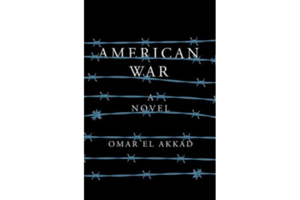

Amir washes up (literally) on a Greek island where he is discovered by Vanna, a teenage girl, who hides Amir in an effort to keep him away from the dehumanizing process the local army has invented to manage such desperate people. The novel tells the story of 9-year-old Amir Utu, a Syrian refugee.

It is not an easy book to finish.Īnd neither is “What Strange Paradise,” though it’s only about half as long. Which means the writer is never surprised by what the character does, which, in turn, means the reader will rarely be surprised either. El Akkad has almost no sense of how to operate a point of view from within a character, which means the action is directed by the writer, not the protagonist. (Photo courtesy of Penguin Random House)īut, geez, it’s not good.

Oil and gas, the object of dispute, serve as rough allegories for race a promising premise, actually, and once in a while the book flashes with interest as the young protagonist makes her way across a poisoned, perilous landscape. “American War” describes an imaginary future civil conflict and its aftermath. He is certainly making a good career of it. But El Akkad doesn’t write novels, he constructs messaging objects, and maybe that’s what readers want these days. Who is sending El Akkad, and books of similar stripe, into such high places? Not readers, I don’t think, at least no reader who likes novels. This brings us to Portland-based writer Omar El Akkad, author of the plodding, dimwitted, much-praised bestseller “American War” and its schematic, boring follow-up, “What Strange Paradise,” both nominated for various prizes and both widely lauded within the industry.

Art allows no principle beyond the pursuit of what makes it good and true, and so it cannot be corrupted by an agenda and still be considered art. This beautiful coherence is what gives art its robust morality and what lends many artists their aversion to fashionable politics. Successful art surprises and confounds everyone, including its creator, because art is wild and constructed not from meaning but from coherence and beauty, which cannot be planned. Novelists who write to convey meaning rather than to uncover characters, or follow a plot, are for the most part not artists but propagandists.


 0 kommentar(er)
0 kommentar(er)
